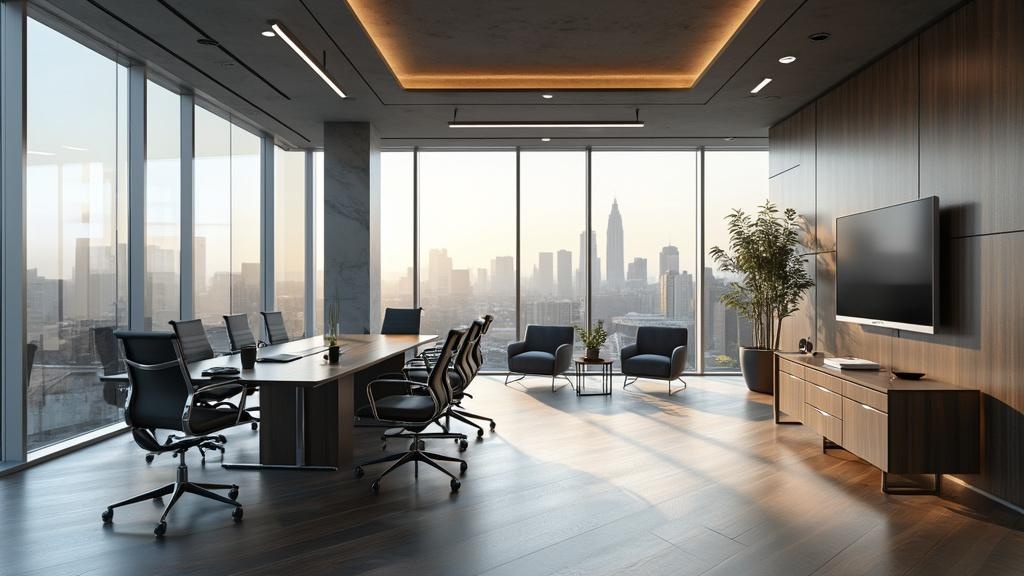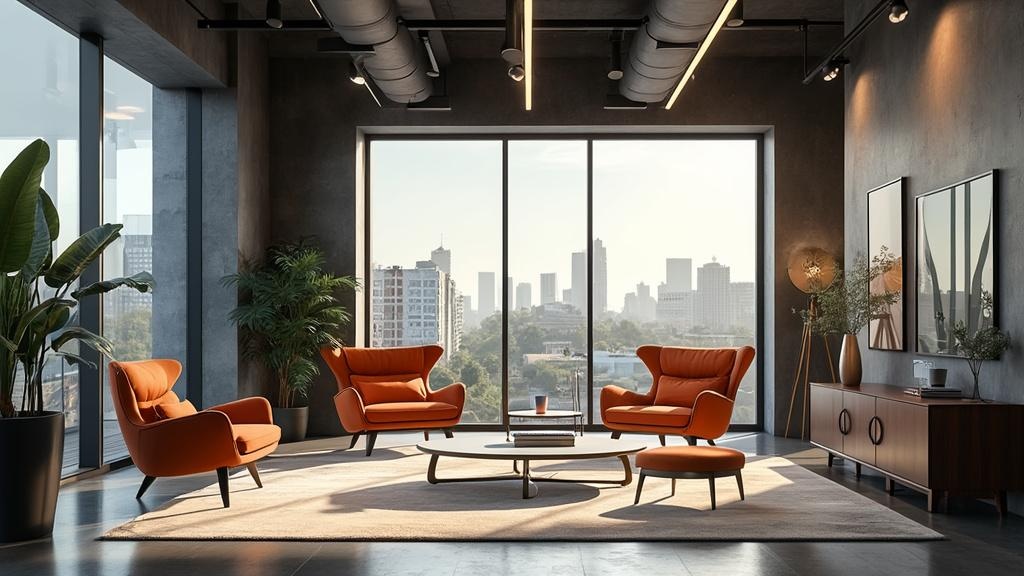The vibrant tapestry of the furniture export industry showcases the remarkable achievements of Polish furniture export companies. By captivating the global market, these innovators blend quality materials with stunning designs, ensuring that every piece resonates with consumers.
Their commitment to combining traditional craftsmanship and contemporary aesthetics elevates their appeal, as these companies increasingly influence the international trade landscape.
Custom solutions and durable products set them apart, positioning them to thrive amidst growing market demand.
Click here to learn more about: wholesale poland
Understanding Polish Furniture Manufacturers
Exploring the rich history of furniture production, Polish manufacturers reveal an artistry deeply rooted in craftsmanship heritage.
Key players like Kler and Vox lead the charge, revolutionizing the industry with their innovative design trends. These industry leaders collaborate closely with local artisans, whose handmade pieces capture the essence of regions such as Kraków and Gdańsk.
Regional Craftsmanship and Its Impact
This regional craftsmanship not only enhances the aesthetic appeal of furniture but also allows consumers to connect with each piece’s unique story.
Each item becomes a sought-after treasure, reflecting the heritage and skill of wood artisans. As a result, these creations gain recognition in the global market.
Innovation and Market Competitiveness
With a focus on exporting regulations and quality standards, Polish furniture manufacturers adapt to meet both international standards and market demands.
Their strategic marketing approaches, including participation in furniture fairs and leveraging online platforms, drive visibility and consumer engagement.
Sustainability also plays a significant role, with many companies adopting eco-friendly practices and local sourcing to appeal to environmentally conscious buyers.
Conclusion
As furniture exports continue to grow, Polish manufacturers remain committed to delivering unique designs and bespoke options.
This dedication to excellence positions them favorably in the competitive European market, ensuring that their contributions to home furnishing are not only recognized but celebrated worldwide.

What Are Unique Design Trends
Modern Polish furniture design showcases a remarkable fusion of cultural heritage and innovative flair. Unique design trends thrive as contemporary influences shape aesthetics across the industry.
For instance, mid-century modern aesthetics often contrast vibrantly with the minimalist Scandinavian styles flourishing across the European market.
Cultural elements significantly contribute to these unique designs, seamlessly weaving traditional motifs into modern furniture pieces.
Notably, innovative materials like sustainable woods and recycled metals enhance visual appeal while resonating with eco-friendly practices that attract environmentally conscious consumers. These trends herald a new era of furniture manufacturers producing exquisite collections that transform home decor.
The Influence of Cultural Elements
Cultural influences serve as a cornerstone in defining today’s design trends.
Furniture styles often draw inspiration from various regions, showcasing the rich artistry of local artisans. This blend of tradition and modernity captivates consumers seeking unique expressions of their personal style.
Innovative Materials and Sustainability
The shift towards sustainability is evident in the use of quality materials.
Sustainable production practices are gaining momentum, with manufacturers prioritizing eco-friendly solutions that meet modern demands.
Innovative designs incorporate durable products that reflect a commitment to environmental responsibility, appealing to a growing market of eco-conscious buyers.
Exploring Handmade Pieces In Export
Handmade furniture enchants international markets through its authenticity and exceptional craftsmanship.
Consumers increasingly value the artisanal touch that transforms each piece into a treasured gem. Artisans diligently maintain traditional techniques while adapting to global demands, blending age-old skills with contemporary design elements.
This fusion creates a captivating narrative in every creation, aligning seamlessly with evolving customer preferences for authenticity.
The Allure of Authenticity
Authenticity has become a key driver in consumer choices. Buyers often prefer products that resonate with personal stories over mass-produced items, emphasizing the unique selling proposition of handmade pieces.
Opportunities in the Export Industry
The export industry presents lucrative opportunities for furniture exports that emphasize quality and craftsmanship.
By focusing on superior aesthetics and unique designs, manufacturers can enhance market demand, capture consumer interest, and thrive in the competitive landscape of the global market.
Unique Design Trends
- Mid-century modern aesthetics often contrast with minimalist Scandinavian styles in European furniture design.
- Sustainable materials like recycled metals and sustainable woods are increasingly used in modern furniture to appeal to eco-conscious consumers.
- Handmade furniture is valued for its authenticity and craftsmanship, attracting consumers who prefer unique, artisanal products.
- The export industry for furniture is growing, with a focus on quality and unique designs driving market demand globally.
Sustainable Production Practices In Poland
Poland stands as a leading force in sustainable production within the furniture industry. Notable furniture manufacturers focus on eco-friendly materials, prominently featuring sustainable woods like beech and birch.
These selections reduce environmental impact significantly and enhance the durability of furniture.
Manufacturers actively pursue initiatives to minimize their carbon footprints.
Implementing renewable energy sources and waste reduction strategies not only boosts sustainability but also aligns with the growing consumer demand for responsible purchases. Consumers are increasingly favoring sustainable furniture options, driven by a commitment to environmental stewardship.
This shift towards sustainability shapes design trends, inspiring brands to innovate while emphasizing their ecological footprint.
Eco-Friendly Materials in Furniture Production
Using eco-friendly materials is a game changer for furniture production. Sustainable practices ensure the use of responsibly sourced woods, which directly contribute to the environmental responsibility of Polish furniture manufacturers.
This conscious selection supports the global market’s demand for durable products that withstand the test of time.
Initiatives to Reduce Carbon Footprints
Leading manufacturers are implementing innovative solutions to reduce their carbon footprints.
By investing in renewable energy, companies not only lower emissions but also enhance their market competitiveness.
This commitment to sustainable production showcases their long-term vision, appealing to eco-conscious consumers.
How Craftsmanship Impacts Quality Materials
The synergy between craftsmanship and quality materials is foundational to Polish furniture production. Exceptional craftsmanship guarantees that every handmade piece features meticulous attention to detail and a superior finish.
Polish artisans skillfully blend traditional methods with modern technology, striking a perfect balance between heritage and innovation. Such practices guarantee a level of quality that stands unrivaled in the export industry.
Balancing Tradition and Modernity
By embracing traditional techniques while incorporating modern tools, artisans in Poland create stunning furniture pieces that resonate with current design trends.
This balance showcases not just their craftsmanship heritage but also addresses market demand for contemporary options that do not compromise on quality.
Case Studies of Successful Brands
Successful case studies demonstrate how brands that emphasize craftsmanship thrive in the competitive global market.
By investing in quality materials and custom solutions, these manufacturers cultivate a loyal customer base.
Such a commitment results in unique designs that not only enhance aesthetic appeal but also resonate deeply with consumers looking for bespoke options.
Sustainable Furniture Production in Poland
- Polish furniture manufacturers prioritize eco-friendly materials like beech and birch, significantly reducing environmental impact.
- Investing in renewable energy sources has become a common practice among manufacturers to lower carbon emissions.
- Craftsmanship in Polish furniture production combines traditional techniques with modern technology, ensuring high-quality, durable products.
- Brands that focus on craftsmanship and quality materials are more likely to build a loyal customer base in the competitive global market.
Navigating The Export Industry Regulations
For Polish furniture manufacturers, adhering to export industry regulations is essential to unlock global opportunities. Compliance with EU regulations not only ensures that your products align with international standards but also elevates your brand’s credibility in competitive markets.
Maintaining thorough documentation is critical; export licenses and invoices should be organized meticulously to prevent any operational delays.
Navigating the complexities of trade agreements can lead to reduced tariffs, providing Polish manufacturers with a substantial pricing edge.
Regular updates on regulatory changes are necessary, allowing you to sidestep potential compliance setbacks and promote your business’s success in the international arena.
Key Regulations Affecting Furniture Exports
- EU Standards: Familiarize yourself with product safety directives and environmental regulations.
- Customs Documentation: Ensure all necessary paperwork, including bills of lading and packing lists, is complete.
- Labeling Compliance: Adhere to regulations about product information and sustainability claims.
Staying informed about exporting regulations can significantly enhance your competitiveness in the global market.
The Impact of Trade Agreements
Understanding the nuances of various trade agreements can profoundly affect your pricing strategies. Negotiated deals can lower tariffs and create favorable conditions for Polish furniture exports, promoting sustainable production practices. By leveraging these agreements:
- Engage with relevant authorities to fully grasp the benefits.
- Implement strategies that align with new market demands.
- Educate your team on compliance standards and protocols.
Marketing Strategies For International Trade
To resonate with international consumers, Polish furniture brands should prioritize effective marketing strategies that highlight their unique selling propositions. Branding centered around craftsmanship and quality materials can significantly enhance customer loyalty. By employing digital marketing techniques such as SEO and targeted social media campaigns, businesses can greatly improve their online presence and attract a broader audience.
Effective Branding Approaches
- Showcase Unique Designs: Highlight your artisanal work and attention to craftsmanship to captivate potential buyers.
- Utilize Emotional Storytelling: Connect with consumers by sharing the heritage and inspiration behind your collections.
The Role of Digital Marketing
Implementing a robust digital marketing strategy is paramount. Use platforms effectively to engage with potential customers and showcase your furniture’s aesthetic appeal:
- Content Marketing: Create engaging blog posts and videos that drive traffic to your site.
- Influencer Collaborations: Partner with designers or decorators to reach a wider audience.
Exploring Local Partnerships
Forming partnerships with local distributors can dramatically enhance your market penetration. Collaborating with established distributors allows you to:.
- Gain Valuable Insights: Understand local consumer preferences and adjust your offerings accordingly.
- Expand Your Network: Tap into existing supply chains and logistics solutions.
Seize the opportunity to amplify your sales and broaden your international reach!
Export Industry Regulations
- Compliance with EU regulations can increase market access by up to 20% for furniture manufacturers.
- Proper documentation can reduce the risk of delays by 30%, ensuring timely delivery of products.
- Trade agreements can lower tariffs by an average of 15%, enhancing price competitiveness.
- Brands that effectively communicate their compliance and sustainability efforts can see up to a 25% increase in customer loyalty.
Benefits Of Custom Solutions For Home Decor
Today’s evolving market shows that custom solutions for home decor are not just a trend but a necessity. As consumers increasingly desire personalized options that reflect their unique styles, businesses that provide tailored home furnishings enhance customer satisfaction.
Personalized decor cultivates a deeper emotional connection to one’s living space, transforming it into a sanctuary that truly represents individual tastes.
Enhanced Customer Satisfaction
When furniture manufacturers offer bespoke options, they tap into a rich vein of customer desire for personalization.
Notable benefits include:.
- Unique Designs: Custom solutions allow consumers to choose styles, materials, and finishes that align with their vision.
- Quality Materials: Tailored pieces often utilize craftsmanship that prioritizes durable products ensuring longevity.
- Functional Fit: Personalized furniture can be designed to fit specific spaces, optimizing functionality in every room.
Successful Case Studies
Several businesses have excelled by integrating innovative design trends with tailored offerings. For example, companies in Warsaw and Kraków have showcased how furniture exports can thrive by aligning with local consumer demands for customization. These enterprises have witnessed:
- Increased Sales: By promoting eco-friendly practices and local sourcing, they appeal to a growing demographic of environmentally conscious buyers.
- Industry Leadership: With a focus on craftsmanship and international standards, they set new benchmarks for quality and service.
It’s time to realize the potential of custom solutions, ensuring your home reflects your style and enhances your daily living experience.
Custom Solutions for Home Decor
- 70% of consumers prefer personalized products that reflect their individual styles.
- Custom furniture can increase customer loyalty by up to 30% due to enhanced satisfaction.
- Businesses offering bespoke options report a 25% increase in sales compared to those with standard offerings.
- Eco-friendly materials in custom solutions attract 60% of environmentally conscious buyers.
Custom Furniture Manufacturing Poland Delivers Unique Designs
Affordable Furniture Wholesalers Poland Offer Quality Choices


